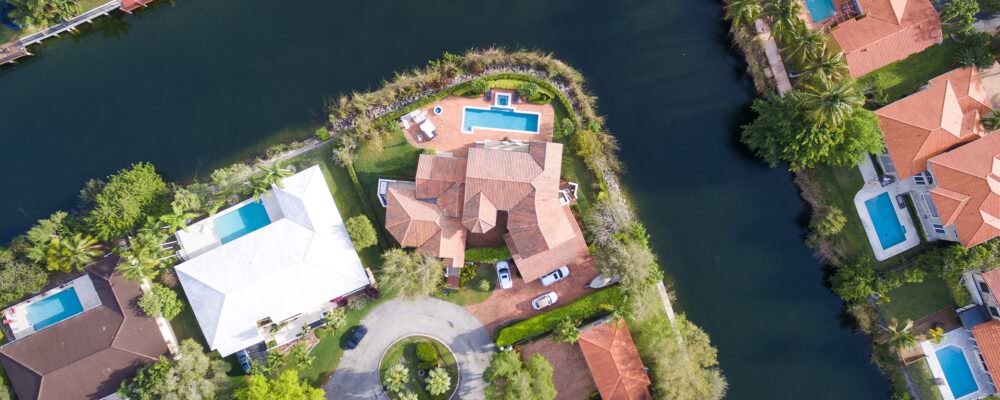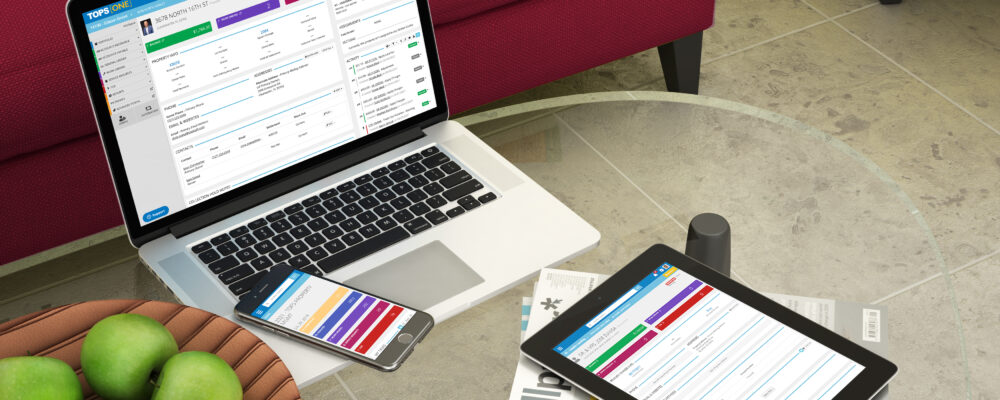NOTE: This post has been updated as of March 27, 2018 to reflect additional changes signed into law by Governor Scott. One good thing is the deadline has been extended from July 1, 2018 to January 1, 2019. The rest is mostly just clarification.
Quoted text with a strikethrough was removed from original content, and quoted text with a boldface underline was added to the original content.
The clock is ticking! You have until Jan. 1st 2019 to comply.
Having an online presence can be a real headache for community associations. Not only is it a lot of extra work for already overworked volunteers, it can also get you into trouble. So, I get it when CAM professionals and board members are hesitant to roll out community association websites, social media and other online tools.
Unfortunately, if your community is in the state of Florida, you no longer have a choice, at least about the website part. Here’s everything you need to know about the new changes to condo statute 718.111 taking effect Jan 1, 2019.
I Am Not in Florida, Does This Even Matter?
While you may not be legally required to have a website by this July, you should definitely be informed about this law.
In general, only a few states in the country have regulated community associations as much as Florida. And, having more associations than nearly all the other states put together, Florida often provides the blueprint for laws that other states follow. In other words, if it isn’t in your state now, it may be sooner than you think.
We’re Really Small. Do We Still Need a Website?
The law only specifies that condo associations over 150 units need to comply, so if you’re small, you’re free to stick with old fashioned notices on a bulletin board for now. Also, timeshare communities are exempt, although I cannot imagine how a timeshare community could conduct business in today’s world without an online presence!
Condos Only, Right? So My HOA Doesn’t Need a Website?
You may be tempted to think your association doesn’t need a website because this law only applies to condo associations, but slow down for a sec.
While 718.111 only applies to condos, there was another law (SB398) passed in the same legislative session (applying to condos, HOAs and Co-ops) that may apply. While the law does not specifically say HOAs and Co-Ops must have a website, it does say “Each association shall designate on its website…” which assumes that each association must HAVE a website.
Furthermore, while the state of Florida has a different set of laws for Condos and HOAs, there are a number of circumstances that can cause your community to fall in a grey area, such as townhomes, mixed use, PUDs, and master associations.
My advice to HOAs and Co-ops is to go ahead and comply with the law, even if you aren’t technically a Condo association. At the very minimum, you’ll need to have a page with the required estoppel information.
We Already Have a Facebook Group for Our Community. Is That Enough?
Your Facebook group or realtor’s website or community section on Zillow may seem to be enough to get the job done, but in the eyes of the law, it doesn’t count.
Neither does your owner-run independent website.
According to the law, the website must be “An independent website or web portal wholly owned and operated by the association; or A website or web portal operated by a third-party provider with whom the association owns, leases, rents, or otherwise obtains the right to operate a web page, subpage, web portal, or collection of subpages or web portals dedicated to the association’s activities and on which required notices, records, and documents may be posted by the association.”
In other words, the association (and by extension the board,) has to officially run and operate the site.
We Used a Free Website Service to Make a Page for Our Community. Will That Work?
The key point in the law is that you need to have a private, password controlled section on your website that only homeowners can see.
“The association’s website must be accessible through the Internet and must contain a subpage, web portal, or other protected electronic location that is inaccessible to the general public and accessible only to unit owners and employees of the association.” So if your free website provider offers a private area that you can control, then it is compliant.
That said, I would caution against using a single login that is shared by all of your owners – you would need to change the password every time a home is resold to prevent former owners from retaining access, which could get crazy pretty quick. The best case scenario is a product or service that allows you to synchronize resales and logins so that the site is always up to date.
Ok, Fine. We Have to Make a Website. What Do We Have to Include on This Site?
There’s a lot, but it’s mostly pretty obvious (with a few curve balls thrown in to make sure you stay awake). Here is a breakdown:
Privately Accessible to Owners
- All of your governing documents in digital form. This includes your declaration, articles of incorporation, bylaws, CC&Rs, and every amendment that has been made to any of the above.
- A list of all executory contracts or documents (a contract that has not yet been fully performed or fully executed) as well as a summary of any open bids. “A list of all executory contracts or documents
Any management agreement, lease, or other contractto which the association is a party or under which the association or the unit owners have an obligation or responsibility and, after bidding for the related materials, equipment, or services has closed, a list of bids received by the association within the past year. Summaries of bids for materials, equipment, or services which exceed $500 must be maintained on the website for 1 year. In lieu of summaries, complete copies of the bids may be posted.” - Current and pending budgets. “The annual budget required by s. 718.112(2)(f) and any proposed budget to be considered at the annual meeting.”
- Annual financial reports*, meaning the report community associations are required to supply within 90 days of the end of the fiscal year to inform owners of the fiscal state of the community. Additionally, you will need to include the financial statement for the most recent calendar period (monthly income & expense statement).
- Info on your board of directors, including each member’s certification document**, any contracts between them and the association, and any declarations of a conflict of interest.
- Supporting documents for consideration at unit owner meetings and the annual general meeting, including any item which will be considered by and voted on by homeowners, at least 7 days prior to the meeting.
- Board meeting Notice, Agenda and supporting items pending votes, at least 48 hours prior to the date of the meeting*** (Boards are expected to redact or withhold any information within that is not intended to be accessible to all owners****.)
Publicly Available
- Meeting notices for any meeting of the unit owners and the annual general meeting. Must be posted no less than 14 days prior to the meeting. This info must be linked from the home page, or listed on home page under a section titled “Notices.”
- Association’s estoppel designee. “Each association shall designate on its website a person or entity with a street or e-mail address for receipt of a request for an estoppel certificate issued pursuant to this section. The estoppel certificate must be provided by hand delivery, regular mail, or e-mail to the requestor on the date of issuance of the estoppel certificate.” This change was passed under SB 398: Estoppel Certificates, and applies to Statutes 718 (condos), 719 (co-ops) and 720 (homeowners associations).
Isn’t There An Easy Way To Do This?
Looking for an easy way to implement all of this?
Look no further than the Owner Portal in Enumerate Central! Owner Access is a built-in service available to all Enumerate Central customers at no additional charge. You can activate an unlimited number of communities to provide your homeowners with password-protected access to all of their key documents, account status, balance and payment history.
Owner Access even offers Payments, so homeowners can set up and manage their regular assessments payments to automatically pay from their account.
And sharing documents through Owner Access couldn’t be easier with the document management system built-in to Enumerate Central, specifically designed to comply with this law! You can share documents at the community level, with the board, to a specific property, or even down to the individual owner level. It doesn’t get any more personal than that! (Or easy – sharing documents takes fewer than 5 clicks to give everyone who needs it.)
So there you have it. By Jan 1, 2019, make sure you have all of this available, on public and private sides of your newly overhauled Florida community association website. Maybe you even throw in a few extras to make owners happy. Not only will you be compliant with the law, your homeowners and future homeowners will love the ease of access to their community’s information!
* 718.111(13) – “Within 90 days after the end of the fiscal year, or annually on a date provided in the bylaws, the association shall prepare and complete, or contract for the preparation and completion of, a financial report for the preceding fiscal year…”
** 718.112(2)(d)4.b – “Within 90 days after being elected or appointed to the board of an association of a residential condominium, each newly elected or appointed director shall certify in writing to the secretary of the association that he or she has read the association’s declaration of condominium, articles of incorporation, bylaws, and current written policies; that he or she will work to uphold such documents and policies to the best of his or her ability; and that he or she will faithfully discharge his or her fiduciary responsibility to the association’s members…”
*** 718.112(2)(c)1 Adequate notice of all board meetings, which must specifically identify all agenda items, must be posted conspicuously on the condominium property at least 48 continuous hours before the meeting except in an emergency.”
**** 718.111(12)3 “The association shall ensure that the information and records described in paragraph (c), which are not permitted to be accessible to unit owners, are not posted on the association’s website. If protected information or information restricted from being accessible to unit owners is included in documents that are required to be posted on the association’s website, the association shall ensure the information is redacted before posting the documents online.”
Let us help you to eliminate many of your regular administrative tasks and save time. Watch a demo or reach out to a Sales Representative. We would love to show you more about these features and how they can help you make your days feel more relaxed.
Work Smarter
Get a FREE Consultation
Are you looking for an easier way to do your job?
Then you’re a perfect candidate for a free phone consultation. We’ll listen to your needs and problems, then we’ll come up with expert ideas you can use right away to make operations improvements, boost productivity, and reduce stress.
Our promise to you:
- We’ll provide only the most relevant information and industry news
- This consultation is 100% FREE
- There’s no obligation
We look forward to speaking with you soon!







